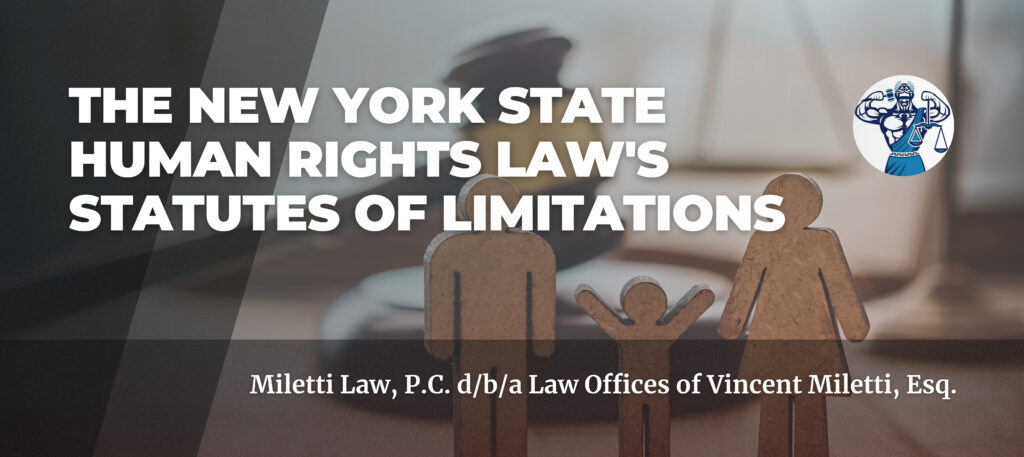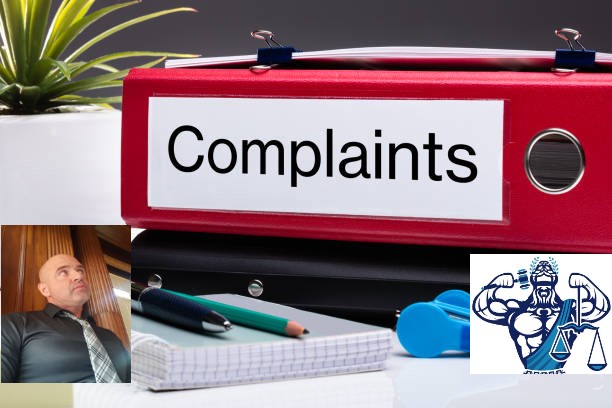Here at the Law Office of Vincent Miletti, Esq. and the home of the #UnusuallyMotivated movement, we take pride as a resilient and dependable legal services firm, providing such services in both a traditional and online, web-based environment. With mastered specialization in areas such as Employment and Labor Law, Intellectual Property (IP) (trademark, copyright, patent), Entertainment Law, and e-Commerce (Supply Chain, Distribution, Fulfillment, Standard Legal & Regulatory), we provide a range of legal services including, but not limited to traditional legal representation (litigation, mediation, arbitration, opinion letters and advisory), non-litigated business legal representation and legal counsel, and unique, online legal services such as smart forms, mobile training, legal marketing and development.
Still, we, here at Miletti Law®, feel obligated to enlighten, educate, and create awareness, free of charge, about how these issues and many others affect our unusually motivated® readers and/or their businesses. Accordingly, in order to achieve this goal, we have committed ourselves to creating authoritative, trustworthy & distinctive content, which looks to not only educate, but also deliver in a manner that only Miletti Law® can. Usually, this content is featured as videos posted on our YouTube Channel https://www.youtube.com/channel/UCtvUryqkkMAJLwrLu2BBt6w and blogs that are published on our website WWW.MILETTILAW.COM. With that, the ball is in your court and you have an effortless obligation to subscribe to the channel and sign up for the Newsletter on the website, which encompasses the best way to ensure that you stay in the loop and benefit from the knowledge bombs that we drop here!
In the spirit of keeping our word, this blog is Part VII of our series on federal laws that apply to the issues of workplace harassment, discrimination, & retaliation in New York. In Part VI, we discussed “What Workers are Covered” under these New York federal laws. Accordingly, we have moved forward the discussion in this blog, which is Part VII, and hammered on “Protected Classes,” as it concerns these applicable New York federal laws. For starters, several classes of employees in New York are protected by the federal laws discussed since Part I of this series. These laws and the particular classes are discussed below in the same order as in other blogs under this series.
Classes Protected under New York Federal Laws Applicable to Workplace Harassment, Discrimination, & Retaliation
Americans with Disabilities Act (ADA), 42 U.S.C. § 12101 et seq.
As provided for by clause 42 U.S.C. § 12112(a), all qualified persons with disabilities belong to a class protected by the ADA. The ADA defines a qualified person as the one:
- Who has the ability to perform the essential functions of the employment position with or without reasonable accommodation –and-
- Possesses the requisite job-related requirement or qualification, training, education, or skill and, thus, qualified for the position.
Title VII of the Civil Rights Act of 1964 (Title VII), 42 U.S.C. § 2000e et seq.
Examples of classes protected by Title VII from discrimination and harassment include race, national origin, religion, sex, and color. Pregnancy-based discrimination, gender identity, and sexual orientation are included and defined by Title VII as sex discrimination.
Pregnancy Discrimination Act (PDA), 42 U.S.C. § 2000e(k)
The PDA prohibits discrimination in employment because of or based on childbirth, pregnancy, and or related medical conditions, as an expansion of Title VII’s definition of discrimination “because of sex.”
Fair Labor Standards Act (FLSA), 29 U.S.C. § 201 et seq.
As provided for by clause 29 U.S.C. § 215(a)(3), current and former employees are classes of employees protected from retaliation by the FLSA.
Patient Protection and Affordable Care Act (ACA), 42 U.S.C. § 18116.
Any person who engages or is about to engage in any of the following whistleblowing activities belong to a class protected from retaliation by the ACA:
- Assisting, participating, or testifying in a whistleblower proceeding under the ACA.
- Reporting or assisting the reporting to a state attorney general, the federal government, or an employer, of a violation of or an omission or act that an individual reasonably believes violated ACA’s Title I, including, but not limited to coverage of certain preventative services with no cost-sharing and prohibitions on lifetime coverage limits.
- Refusing or objecting to participating in an activity that a person reasonably believes to be in violation of the ACA.
Furthermore, as provided for under clause 29 U.S.C. § 218c (a)(1), persons that receive subsidies or tax credits following their enrolment in a government healthcare exchange are protected by the ACA as well. Furthermore, following their failure to offer coverage that either does not provide a minimum value or is unaffordable or does not provide minimum essential coverage to full-time employees and their dependents, some large employers may incur tax penalties as provided for under the ACA. This implies that an employer’s liability for a potential tax penalty or an employee’s subsidy or credit receipt could stimulate a reason for an employer to retaliate against such a subsidy or credit recipient (employee).
Age Discrimination in Employment Act (ADEA), 29 U.S.C. § 621 et seq.
As provided for under clause 29 U.S.C. § 631(a), the ADEA prohibits employment discrimination based on age against persons aged 40 years and above.
Equal Pay Act (EPA), 29 U.S.C. § 206(d).
By paying wages at a lower rate to employees compared to the rate paid to employees of the opposite sex for equal work, employers are prohibited by the EPA from discriminating against employees on a sex basis.
Section 1981, 42 U.S.C. § 1981.
Race is the most significant protected class under Section 81. However, this federal law prohibits employment discrimination based on other characteristics such as ancestry, ethnicity, and color. Furthermore, courts have ruled that alienage is a protected class under Section 81.
Uniformed Services Employment and Reemployment Rights Act (USERRA), 38 U.S.C. §§ 4301–4335.
As provided for in clauses 20 C.F.R. § 1002.18 & 38 U.S.C. § 4311, applicants and employees are explicitly protected by the USERRA from an employer’s denial of benefit of employment, promotion, retention in employment, reemployment, and even initial employment based on the employees or applicants’ membership, an obligation for service, application for service, the performance of service, or application for membership in the uniformed services. Notably, in clause 20 C.F.R. § 1002.40, employers are prohibited by the USERRA from withdrawing a job offer to an applicant who has received a military service invitation.
Additionally, non-service members, including those persons participating in a USERRA investigation or testifying in a USERRA proceeding, are protected from anti-retaliation by USERRA’s anti-retaliation provisions. Suppose a person has sought or requested a leave of absence for military service from the employer but is denied reinstatement and/or the accompanying benefits upon return. In that case, such an individual can bring claims under this federal law’s provisions for antidiscrimination and those governing the right to employment.
10. Family and Medical Leave Act (FMLA), 29 U.S.C. §§ 2601–2654.
Employees or applicants that have exercised or are willing or attempting to exercise any right under the FMLA are eligible for protection against discrimination, harassment, and retaliation under this federal law. As provided for under clause 29 U.S.C. § 2615, the FMLA protects any individual who complains about or opposes any unlawful practice under the FMLA against discrimination.
In Part VIII, we will hammer on Conduct Requirements pertaining to conduct prohibited by the above-discussed laws that apply to workplace harassment, discrimination, & retaliation in New York.
Until then, stay tuned for more legal guidance, training, and counsel. In the interim, reach us with questions or comments on our website at the Contact Us page!
Always rising above the bar,
Isaac T.,
Legal Writer & Author.
 Professional Legal & Business Services And Representation - English & Espanol!
Professional Legal & Business Services And Representation - English & Espanol!

 314-648-2586
314-648-2586 CALL US NOW
CALL US NOW








